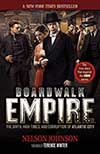When you get an offer of representation from a literary agent, what should you expect and do? Use this step-by-step guide to navigate the process of getting a book agent offer of representation. It’s part of our free 15-Part Guide About How to Get a Publishing Agent.

Offer of Representation From a Literary Agent – FAQ

First Meeting With a Book Agent
What should you expect during your first meeting with a book agent? If a publishing agent suggests a meeting via phone, a video call, or in person (this happens rarely), it usually means an offer of representation is coming–or has already been made–but not always.
What do you need to consider when you get an offer of representation from a literary agent?
Approximately two thirds of the time, literary agents offer representation via email before the author has their first meeting with the book agent. On other occasions, authors are offered representation during their first meeting. And, in a smaller number of situations, authors are invited to a first meeting that doesn’t end with a literary agent offer for representation.
If you have a first meeting with a literary agent that doesn’t include an offer for representation, don’t worry. The first meeting will likely include an invitation to resubmit your manuscript after applying suggestions the book agent shares with you during the meeting. That is, if you decide to incorporate the suggestions.
In rare cases, writers will find themselves having a first meeting with a publishing agent that doesn’t include a representation offer or an invitation to resubmit. When a book agent does that, the manuscript feedback is simply a gift to help the writer improve their manuscript so they can improve their chances with other author representatives.
Questions a Book Agent Will Ask – offer of representation from a literary agent
Prepare for these questions a book agent might ask when you get an offer of representation from a literary agent. Publishing agents offering representation often ask questions about your book, past and future works, promotional plans, and more.
- How many queries have you sent out?
- Are other book agents reading or seriously interested?
- Has your book been submitted to publishers?
- Is the book previously self-published?
- What else have you written?
- Has anything you’ve written been published?
- What other books do you plan to write?
- What are your goals as an author?
- How open are you to manuscript revisions?
- What are your promotional plans for the book?
The above list of questions an author representative might ask is just a potential partial list. Some book agents ask very few questions. Each situation is different. However, the list above highlights the questions a publishing agent is most likely to ask.
Questions to Ask a Publishing Agent – offer of representation from a literary agent
These questions to ask when you get an offer of representation from a literary agent will help you avoid problems, and choose the best book agent. If you get a representation offer from a literary agent, you need to know what to ask about your book, the book agent, and the book agent’s plans for your book.
- Is there anything you believe I should change or do to make it more likely the manuscript would be successful with publishers?
- How many publishers do you believe you would submit the book to?
- When do believe you might start submitting the book to publishers?
- What do you believe our best-case scenario might be? (For example, how quickly an offer might come in, the size of the advance.)
- What do you believe a more modest success would look like?
- Would you be my agent, or someone else at your literary agency? (Only ask this if you know there are multiple book agents.)
- How do you handle subsidiary rights? (For example, international rights, feature film, television, etc.)
- How do you share submission updates and publisher feedback with your clients, since I know it might take a while for publishers to respond?
- How do you prefer your clients communicate with you if they have a question or an important update?
- Will you consult with me before accepting an offer on my behalf?
There might be additional questions to ask a literary agent that you should consider. Each situation is different, so the best questions for literary agents can vary. However, this is our standard list of questions to ask a literary agent if the book agent offering representation doesn’t volunteer that information.
Multiple Offers From Publishing Agents
Getting multiple offers from publishing agents doesn’t happen often. Do these four things to increase your odds of getting multiple offers from book agents–and to manage multiple offers from literary agents.
- Submit a large number of submissions to increase your chances of getting multiple offers. Divide the book agents on your submission list into two categories, based on your literary agent research: very successful and not as successful. Query one person at every literary agency you believe should be in your top tier of literary agencies.
- If you get an offer of representation from a book agent, immediately notify any other book agents who’ve requested more material but haven’t yet rejected the manuscript or offered representation.
- Decide how long you’re going to wait to get a final decision regarding an offer of representation from the other agent(s) considering your work. Don’t wait too long, though, as you can lose the first offer of representation from a literary agent.
- If you end up with multiple offers for representation from book agents, do more literary agent research to help you decide who to sign with. You should also follow our tips below about selecting the best author representative.
Choosing a Book Agent – offer of representation from a literary agent
Choosing a literary agent starts with knowing what to look for in a book agent. Not all book agents are created equal. Follow these four steps regarding how to pick a publishing agent so you can select a literary agent you’ll be happy with.
- Research the publishing agents. Look at our step-by-step guide to finding and researching literary agents. Then look on Google to find all you can about the book agents offering to represent you, including at PublishersMarketplace.com. It’s worth paying their small fee to get access to their deals database if you have two or more book agents offering to represent you.
- Make a pros and cons list for each book agent. Make a checklist of what’s important to you in a literary agent, then make a list of the positives and negatives for each author representative offering to represent you. Consider the research you found online, but also your interaction with the publishing agents.
- Talk to someone. Choosing a literary agent is an important decision. Don’t decide alone. Consult someone knowledgeable about the publishing industry to help you choose.
- Take your time to decide. Most literary agents offering to represent authors aren’t pushy. However, some are. It’s also easy to be impatient and impulsive when you get an offer from a literary agent for representation. Don’t rush.
Literary Agent Contract
Most literary agencies provide a literary agent contract when offering representation. Some don’t. The main thing a literary agent agreement does is ensure the publishing agent gets their literary agent commission if they sell your book. Here’s everything else you need to know about getting a publishing agent contract.
When you get an offer of representation from a literary agent, you can expect your literary agency to provide a written book agent contract. It might be a literary agent contract template or sample literary agent contract instead of a final book agent contract with your personal details.
After you review the publishing agent contract sample, you’ll be expected to ask questions if you have any, and negotiate any necessary changes. After that, the literary agent offering to represent you will send you a final book agent contract via email, postal mail, or a secure online file sharing service such as DocuSign, for your signature.
Literary agencies often send a publishing agent contract without a signature, then they countersign the document. Don’t worry if you don’t get your countersigned book agent contract right away. Some literary agencies take weeks or longer. If you don’t receive your final contract within two weeks, send a polite follow-up email to make sure it hasn’t gotten lost.
Standard Book Agent Contract – offer of representation from a literary agent
A standard literary agent contract includes clauses about the author, book(s) to be represented, term of the agreement, literary agent commission, and more. Here is a list of the typical literary agent contract clauses you can expect if a prospective literary agency sends you a literary agent agreement sample.
- Parties Involved: The legal names of the author and the literary agent offering to represent you.
- Book(s) To Be Represented: This clause reveals which book(s) of yours is/are included in the agreement.
- Term: This clause reveals the duration of the agreement.
- Renewal: Typical publishing agent contracts have “auto-renew” language that extends the agreement for an additional term unless you or the literary agency terminates the agreement.
- Termination: Most literary agencies include the ability for either party to end the relationship for any reason.
- Assignment: This covers the transfer of your agreement if the literary agency is sold or you want to leave your royalties to a family member, etc.
- Commission: This ensures your author representative gets paid if your book is sold to a book publisher.
- Expenses: If your literary agency charges expenses, they will be listed here.
- Payments: This says how soon you will get paid by your literary agency after they get paid by your publisher.
- Governing Law: This clause usually says the agreement will be governed by the laws of the state where your literary agency is located.
- Dispute Resolution: This clause usually says a mediator much be engaged if there is a dispute that can’t be resolved.
- Notices: This clause usually says that any legal notification regarding the agreement must be sent via certified mail.
- Authority: This clause says the author has the authority to sign the agreement.
- Entire Agreement: This clause says that anything not included in the agreement isn’t relevant.
Publishing Agent Contract Terms – offer of representation from a literary agent
Literary agent contract terms vary, but here are the standard terms you can expect to see in your book agent contract. Most literary agency agreements are similar. However, this guide will help you realize if a literary agency sends you something unusual.
- Some literary agents offering to represent an author only mention one book. Others include every book the author has ever written–and every book the author will write during the term of the agreement.
- The most common term or duration is twelve months. Some say six months, and others multiple years. The term might not matter to you if you have a good termination clause.
- Most book agents don’t try to “hold authors hostage” if they want to terminate their agreement. Instead, those literary agent have contract terms that say the author (or author representative) can terminate the agreement at any time.
- Book agent contract terms typically say the agreement will “auto-renew” at the end of contract term–unless the author or literary agency terminate it prior to the renewal date. You can usually get the literary agent offering to represent you to change that to say the agreement will expire at the end of the term unless the author extends the agreement for another term.
- Most publishing agents receive a 15% commission, and 20-30% for “subsidiary” sales such as movie or international rights that require sharing or splitting their commission with a sub-agent or co-agent.
- Some literary agencies include language in their literary agent contract terms about reimbursement for phone, photocopy, and courier costs associated with managing a writer’s work. This amount is usually $100-$350 per year.
- Most literary agent contract terms say the literary agency will send all author payments within 7, 10, 15, or 30 days of receipt from the publisher.
Book Agent Contract Red Flags – offer of representation from a literary agent
Watch out for these literary agent contract red flags when a literary agent is offering to represent you. Red flags are usually in these areas: term, books represented, termination, renewal, commission, expenses, and payments.
- Language including every book you’ve written and/or every book you’ll write during the contract term: Author representatives usually pitch one book (or series) at a time. Additional books can be added to your agreement later.
- More than a one-year term: One year, or less, is enough. Especially if there’s no termination clause that lets the writer terminate the agreement during the contract term.
- Termination: Many author representatives say you can only terminate your contract after the initial contract term. If your contract says that, it would be best to make sure the contract term is one year or less. Avoid any literary agency that charges a fee to terminate an agreement.
- Renewal: If your agreement says it will “auto-renew” at the end of contract term, make sure the renewal term isn’t longer than one year.
- Commission: If you’ve queried most literary agencies, only have one offer for representation, and the literary agent requires a higher percentage than 15%, it is worth considering. The book agent probably won’t reduce the commission unless you have another offer from another literary agency offering the standard commission.
- Expenses: Though many literary agencies require a small reimbursement for costs associated with managing a writer’s work (usually $100-$350 per year), be wary of those asking for more. Especially if the expenses are to be paid directly by you instead of from publisher payments.
- Payments: If your literary agency contract says it will take longer than 30 days to send you publisher payments, try to get it changed to 30 days.
Publishing Agent Lawyer
What is a literary agent lawyer, and what’s the difference between a book agent lawyer and a literary agent? Here’s an explanation, along with the ten reasons a writer might hire a book agent lawyer.
- Review your literary agency contract
- Review your book publishing contract
- Your book content requires permissions
- Your book include content some might call libelous or defamatory
- Terminate a literary agency contract
- Terminate a book publisher contract
- Assistance with a writer collaboration agreement or dispute
- Register or protect your manuscript copyright
- Register or protect your trademark
- Register your company or DBA for tax purposes, etc.
Should you hire a publishing agent lawyer when you get an offer of representation from a literary agent? Most writers with books published by large publishing houses such as Random House don’t have a literary agent lawyer. They also don’t usually have entertainment lawyers. They simply rely on the advice of their book agents.
Literary agents advise their clients about contracts, but most author representatives aren’t lawyers. If writers want or need “legal advice,” they might decide to hire a literary agent lawyer. That way they can consider the advice of their publishing agent and their publishing agent lawyer.
This article about getting an offer of representation from a literary agent was written by former literary agent turned author coach Mark Malatesta, creator of The Directory of Book Agents, host of Ask a Publishing Agent, and founder of Literary Agent Undercover and The Bestselling Author.
Mark has helped hundreds of authors get offers from literary agents and/or traditional publishers. Writers of all Book Genres have used our Book Agent Advice coaching/consulting to get Top Literary Agents at the Best Literary Agencies on our List of Literary Agents.
Offer of Representation From a Literary Agent – Next Steps
Now that you’ve read about what happens when you get a representation offer from a literary agent, click here to:
- See the next part of this guide about What Happens After You Get a Book Agent.
- Visit our Ask a Book Agent page, where you’ll find a complete list of questions and answers about getting a publishing agent.












 MARK MALATESTA is a former literary agent turned author coach. Mark now helps authors of all genres (fiction, nonfiction, and children's books) get top literary agents, publishers, and book deals through his company
MARK MALATESTA is a former literary agent turned author coach. Mark now helps authors of all genres (fiction, nonfiction, and children's books) get top literary agents, publishers, and book deals through his company